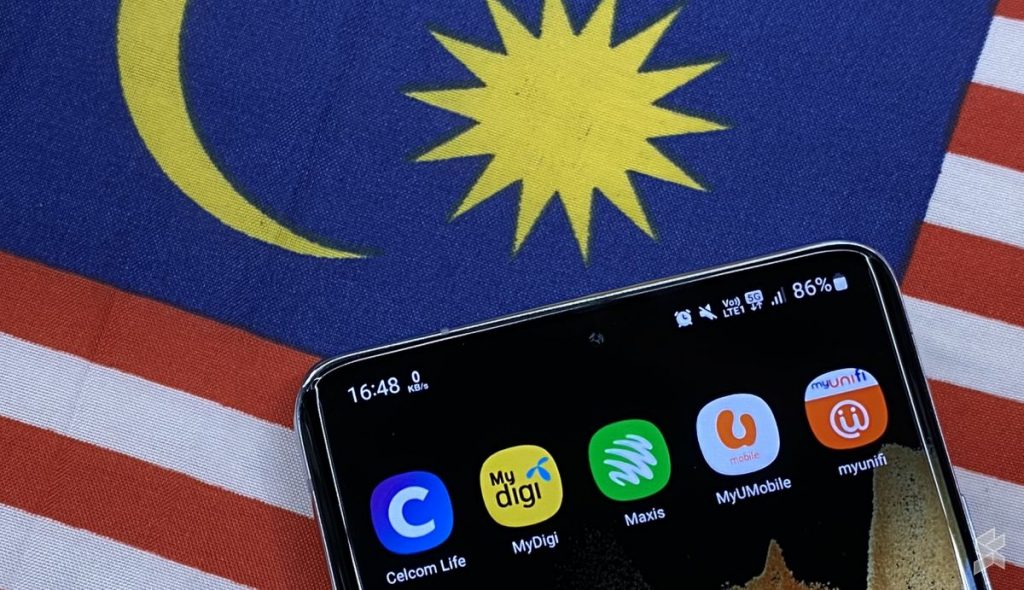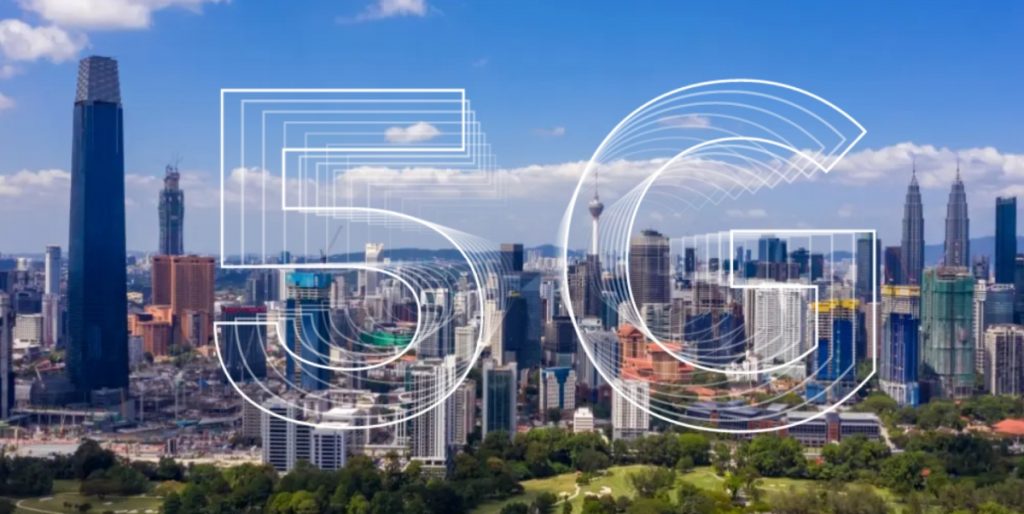Communications and Multimedia Minister Tan Sri Annuar Musa has assured via his Facebook page that Malaysia’s 5G implementation is still on track and going according to plan. This comes after Maxis and U Mobile’s refusal to take an equity stake in Digital Nasional Berhad (DNB), Malaysia’s state-owned 5G network.
The Minister highlighted that the government has decided to go with a single wholesale network (SWN) approach under the MyDigital framework and the 5G implementation will be carried out by DNB. He added that his ministry fully supports the SWN model and the Malaysian Communications and Multimedia Commission (MCMC) has awarded the necessary licences and 5G spectrum to DNB for a period of ten years until 2031.
Telcos expected to sign access agreements by end September

Annuar Musa said DNB has already deployed 2,100 5G sites nationwide as of end August, with 33% population coverage in eight states including Kuala Lumpur and Putrajaya. He expects the 5G network to reach 36% population coverage by the end of 2022 and will cover 80% of populated areas by the end of 2024. To tackle implementation challenges, his ministry through MCMC and DNB have actively engaged with state and local governments as well as relevant stakeholders to overcome policy issues.
As confirmed by DNB on 31st August, there are currently four telcos that are still interested in taking an equity stake in DNB, namely Celcom, Digi, Telekom Malaysia and YTL Communications. Annuar said the equity stake offer is currently in its final stages and negotiations with the four telcos are still ongoing. He also hopes that the 5G access agreements will be finalised and signed by 30th September 2022.
To ease equity participation in DNB, he shared that his ministry and the MCMC will be updating several terms on DNB’s licence conditions, particularly the ownership of the company shareholding. He said since DNB would no longer be 100% government-owned, the majority shares would eventually be owned by several telcos that agree to participate. He said as a shareholder and investor, they should also consider the terms to provide assurance of the company’s viability in the future.
At the moment, YTL Communications’ Yes 5G remains the only telco to offer commercial 5G services to the public. Meanwhile, Celcom has recently started its 5G Friendly User Trial with selected customers. Annuar Musa said telcos that wish to provide 5G services should take immediate action. He added while telcos have declared support to the government’s aspiration, he hopes the support will be converted into action by taking advantage of the 5G single wholesale network.
5G concerns yet to be addressed

Malaysia’s mass 5G adoption relies on the participation of the big four telcos namely Celcom, Digi, Maxis and U Mobile. A total of six telcos were supposed to sign the equity stake offer on 30th August but two telcos have pulled out last minute.
Despite Maxis and U Mobile not taking an equity stake, DNB clarified that the two telcos could still offer 5G services if they sign the 5G access agreements. U Mobile has also released a statement on 1st September assuring that it will still be able to offer 5G without investing in DNB. According to a report by Reuters, the two telcos have refused the DNB equity stake deal as there’s no benefit to being a minority shareholder.
The big four telcos have been holding back from signing commercial agreements with DNB due to several concerns about the 5G offer. Some of the pressing issues include the 5G wholesale pricing. According to DNB’s Reference Access Offer (RAO), telcos would have to pay RM30,000 per Gbps per month for 5G access and it’s fixed to a period of 10 years. The big four telcos issued a joint statement in April saying that the access offer from DNB will not enable affordable and quality 5G services. With data consumption increasing on a yearly basis, the wholesale pricing to telcos should gradually reduce over time to ensure affordability in the long run.
There are also concerns that there isn’t a clear regulatory framework to manage a 5G single wholesale network in the country. The current Mandatory Standard for Quality of Service (MSQoS) and Mandatory Standard for Access Pricing (MSAP) still do not cover 5G services. In the current MSQoS, telcos are only required to provide a minimum of 2.5Mbps for 90% of the time for wireless broadband access.
If the government wants to settle the 5G stalemate once and for all, the government has to ensure that the concerns of the industry is addressed accordingly. Finance Minister Tengku Zafrul has said several times that the government is open to allowing foreign telcos to take equity stakes in DNB if the local telcos are not on board. He said early this month that TM and YTL Communications have obtained approval from their board members and are ready to sign. Meanwhile, Celcom and Digi were still getting approval of their board members to decide whether to increase their equity stake in DNB.
DNB is the only entity in Malaysia permitted to operate a 5G network as the MCMC has removed the technology neutrality for existing spectrum. This means existing 4G telcos are not allowed to offer 5G using their existing spectrum.
[ SOURCE, IMAGE SOURCE ]
Related reading
- Here’s the definitive guide for buying a 5G smartphone in Malaysia, from below RM1000 to flagships
- Celcom has started friendly 5G user trials with selected customers, claims 96.21% 4G population coverage nationwide
- 5G now available in Penang, the first state in Northern region to be covered by DNB
- Here is why Maxis and U Mobile declined to invest in DNB | Let’s Talk About #104








